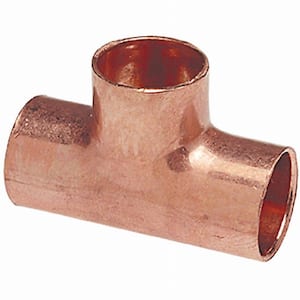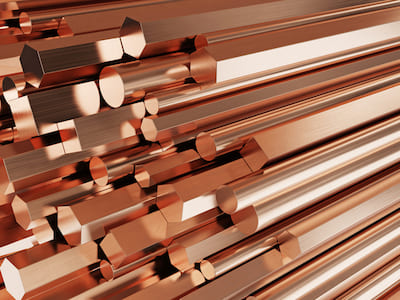Top Trends in Home Decor Featuring Fashionable and Practical Copper Products
Top Trends in Home Decor Featuring Fashionable and Practical Copper Products
Blog Article
Discovering the Diverse Applications of Copper Products in Modern Industries
From enhancing the effectiveness of electrical systems to playing a vital function in renewable power technologies, the convenience of copper is noticeable. As industries significantly focus on advancement and sustainability, the diverse applications of copper require a closer evaluation, especially concerning their prospective impact on future technical innovations and environmental techniques.
Electric Applications of Copper
Copper is a vital product in the electric market, accounting for approximately 60% of the complete demand for non-ferrous metals globally - Copper Products. Its remarkable electric conductivity, which is virtually twice that of light weight aluminum, makes it the recommended option for a variety of electrical applications. From circuitry systems in industrial and domestic buildings to high-voltage power transmission lines, copper ensures efficiency and integrity in electrical power delivery
In addition to electrical wiring, copper is essential to the manufacturing of electrical elements such as generators, transformers, and motors. These elements leverage copper's thermal conductivity and malleability, essential for warm dissipation and reliable performance. Copper's resistance to corrosion boosts the life-span and durability of electrical systems, making it an economical option in the lengthy term.
The development of renewable resource resources, such as solar and wind power, has actually even more boosted the demand for copper in electric applications. As sectors shift towards sustainable power services, copper's role ends up being a lot more crucial. In general, the flexibility and performance qualities of copper solidify its status as a cornerstone material within the electric market, driving development and efficiency throughout various applications.
Pipes and Piping Solutions
In contemporary pipes systems, the option of materials substantially influences both capability and long life. Copper has emerged as a favored choice because of its one-of-a-kind buildings, consisting of corrosion resistance and antimicrobial qualities. These attributes make sure that copper piping stays safe and sturdy for transporting safe and clean water, a crucial consideration in residential and business applications.
Among the crucial advantages of copper in pipes is its ability to hold up against heats and pressures, making it suitable for a range of applications, from hot water systems to home heating and cooling networks. In addition, copper's flexibility enables much easier installment in intricate piping layouts, minimizing the threat of failures and leakages.
One more noteworthy advantage is copper's lengthy lifespan, usually exceeding half a century with proper upkeep. This durability not only reduces replacement costs but likewise adds to lasting methods by minimizing waste. Furthermore, copper's recyclability aligns with modern ecological requirements, promoting a round economy within the plumbing market.
Copper in Renewable Energy
The versatility of copper prolongs past pipes applications, playing a vital role in the eco-friendly power field. In solar panels, copper is used in photovoltaic cells and circuitry, informative post facilitating efficient energy conversion and transmission.

Additionally, as the international need for electric cars (EVs) boosts, copper's role in battery systems and billing framework becomes also extra substantial. The product's capability to perform electricity efficiently is essential to the performance of EV batteries, improving range and charging speed.
Copper's Role in Electronics
Electronics manufacturing relies greatly on copper's remarkable residential or commercial properties, specifically its high electrical conductivity and thermal performance. These features make copper an optimal selection for a wide array of electronic elements, consisting of adapters, motherboard, and wiring. The steel's ability to this effectively transmit electrical signals makes certain very little power loss, which is essential in high-performance digital devices.
Furthermore, copper's thermal conductivity plays a considerable function in heat dissipation, securing sensitive parts from overheating. This is especially vital in contemporary electronics, where compact designs bring about raised warm generation. Copper is also preferred for its malleability and ductility, permitting it to be easily shaped right into complex styles that satisfy the demands of sophisticated electronic applications.
With the rise of consumer electronics, telecommunications, and electrical cars, the need for copper in the electronics field proceeds to expand. Thus, copper continues to be a cornerstone material in the ever-expanding field of electronics.
Cutting-edge Utilizes in Production

One remarkable application is in additive production, where copper-based materials are utilized in 3D printing processes. This permits the development of complex geometries and light-weight components, particularly in the aerospace and vehicle fields. Furthermore, copper's thermal conductivity makes it an excellent selection for warm exchangers, improving performance their explanation in commercial air conditioning systems.
Additionally, the surge of smart production has seen the consolidation of copper in IoT gadgets, where its conductive abilities support advanced sensing modern technologies. In the realm of eco-friendly energy, copper is critical in the production of solar panels and wind generators, assisting in extra reliable power conversion and distribution.
As industries aim for sustainability and innovation, copper's versatility and performance continue to position it as a crucial material, driving developments in manufacturing and contributing to the advancement of smarter, much more reliable products.
Verdict
In summary, copper items show remarkable convenience across different contemporary industries. Copper Products. Their superior conductivity improves electrical applications, while deterioration resistance makes sure dependability in plumbing. The essential duty of copper in renewable resource and its crucial feature in electronics emphasize its importance beforehand lasting practices. In addition, ingenious usages in manufacturing emphasize copper's versatility and enduring relevance. Collectively, these applications highlight copper's essential contribution to technical progression and industrial effectiveness in contemporary society.
From improving the effectiveness of electrical systems to playing an important duty in eco-friendly power technologies, the versatility of copper is apparent. As sectors progressively focus on innovation and sustainability, the varied applications of copper necessitate a closer evaluation, specifically regarding their prospective impact on future technological improvements and ecological methods.
The development of eco-friendly power resources, such as solar and wind power, has actually further enhanced the need for copper in electric applications. In general, the convenience and performance qualities of copper solidify its condition as a cornerstone product within the electric market, driving development and effectiveness across different applications.
The convenience of copper expands past plumbing applications, playing a crucial duty in the renewable energy sector.
Report this page